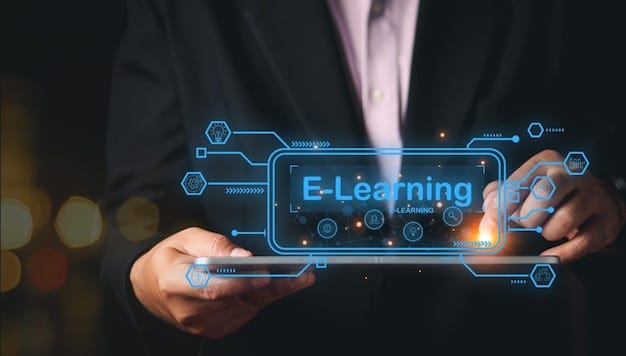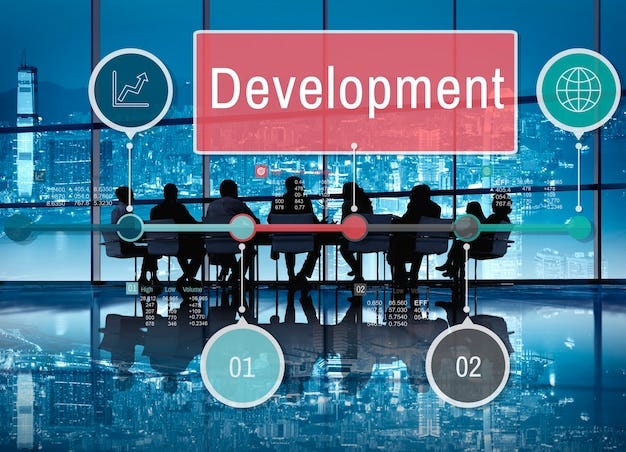In today’s fast-paced world, where learning is no longer confined to traditional classrooms, the demand for custom eLearning solutions has skyrocketed. Custom eLearning development offers tailored learning experiences that cater to the unique needs of learners and organizations alike. From corporate training to academic courses, custom eLearning is reshaping the way we acquire knowledge. In this comprehensive guide, we’ll delve into the intricacies of custom eLearning development, exploring its benefits, process, trends, and future prospects.
Understanding Custom eLearning Development

Custom eLearning development involves the creation of bespoke online learning solutions tailored to specific learning objectives, audience demographics, and organizational goals. Unlike off-the-shelf courses, custom eLearning provides a personalized learning experience that enhances engagement, retention, and skill acquisition.
Key Components of Custom eLearning Development

- Needs Analysis: Conducting a thorough analysis to identify learning objectives, audience characteristics, and organizational requirements.
- Content Development: Crafting relevant and engaging learning content, including multimedia elements such as videos, interactive simulations, and assessments.
- Instructional Design: Designing the instructional framework to ensure effective knowledge transfer and learner engagement.
- Technology Integration: Leveraging cutting-edge eLearning technologies and platforms to deliver seamless learning experiences.
- Assessment and Evaluation: Implementing robust assessment strategies to measure learner progress and course effectiveness.
Benefits of Custom eLearning Development

- Tailored Learning Experience: Custom eLearning solutions are designed to meet the unique needs and preferences of learners, resulting in higher engagement and knowledge retention.
- Flexibility and Scalability: Custom eLearning courses can be easily updated, scaled, and adapted to accommodate evolving learning objectives and organizational requirements.
- Cost-Effectiveness: While initial development costs may be higher than off-the-shelf solutions, custom eLearning offers long-term cost savings by reducing training time and improving performance.
- Alignment with Organizational Goals: Custom eLearning enables organizations to align training initiatives with business objectives, leading to improved employee performance and productivity.
- Data-Driven Insights: Custom eLearning platforms provide valuable data and analytics, allowing organizations to track learner progress, identify areas for improvement, and measure the impact of training initiatives.
The Custom eLearning Development Process

- Discovery Phase: Conducting a thorough needs analysis and defining learning objectives, target audience, and project scope.
- Design Phase: Developing the instructional design, content structure, and visual elements of the eLearning course.
- Development Phase: Creating and assembling the eLearning content, including multimedia assets, interactive elements, and assessments.
- Testing and Quality Assurance: Conducting rigorous testing to ensure functionality, usability, and compatibility across devices and platforms.
- Deployment and Implementation: Launching the custom eLearning course and providing ongoing support, training, and maintenance.
Trends in Custom eLearning Development
- Microlearning: Short, focused learning modules that cater to the needs of modern learners with limited attention spans.
- Personalization: Adaptive learning technologies that deliver personalized learning experiences based on individual learner preferences and performance.
- Gamification: Incorporating game elements such as points, badges, and leaderboards to enhance engagement and motivation.
- Mobile Learning: Responsive eLearning designs optimized for mobile devices, allowing learners to access content anytime, anywhere.
- Virtual Reality (VR) and Augmented Reality (AR): Immersive technologies that simulate real-world scenarios and provide hands-on learning experiences.
Future Prospects of Custom eLearning Development

As technology continues to evolve, the future of custom eLearning development looks promising. Advancements in artificial intelligence, augmented reality, and adaptive learning algorithms will revolutionize the way we design and deliver online learning experiences. With an increasing emphasis on lifelong learning and continuous skill development, custom eLearning will play a pivotal role in shaping the future of education and workforce training.
In conclusion, custom eLearning development offers a myriad of benefits for organizations seeking to enhance their training programs and empower their learners. By embracing personalized learning experiences, leveraging innovative technologies, and staying abreast of emerging trends, organizations can unlock the full potential of custom eLearning to drive performance, foster innovation, and achieve their strategic goals.